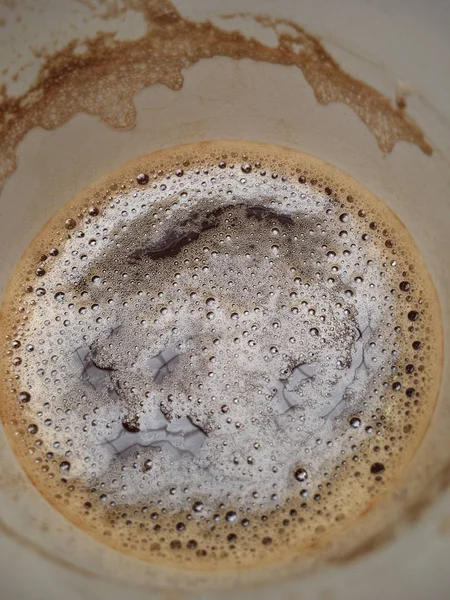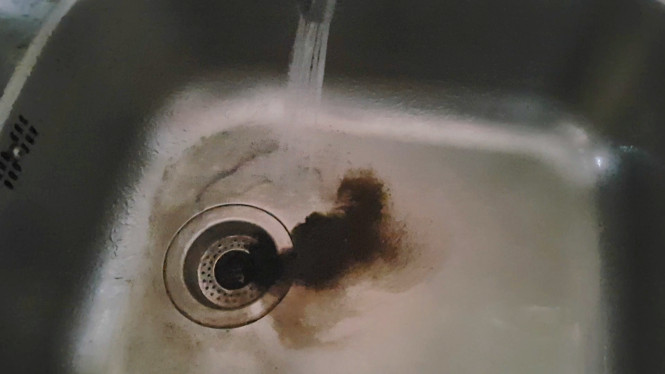We've unearthed this post involving What are the consequences of putting coffee grounds listed below on the web and decided it made good sense to relate it with you on my blog.

If you're an enthusiastic coffee enthusiast, you could be questioning the most effective means to dispose of your coffee premises. While it might appear hassle-free to wash them down the sink, this method can lead to several issues for both your plumbing and the setting. In this short article, we'll explore whether it's safe to put coffee grounds down the sink and talk about alternate disposal techniques to think about.
Dangers of Putting Coffee Grounds Down the Sink
Plumbing Issues
Among the key worry about disposing of coffee premises down the sink is the danger of obstructing your pipelines. Coffee premises do not liquify in water and can accumulate gradually, creating a thick sludge that can block drains and cause costly plumbing repair services.
Environmental Impact
Beyond the potential damages to your plumbing, placing coffee premises down the sink can additionally hurt the setting. When cleaned right into the sewage system, coffee grounds can add to blockages in drain lines and therapy centers. Additionally, the high concentration of raw material in coffee premises can diminish oxygen degrees in rivers, adversely affecting water life.
Alternatives to Disposing of Coffee Grounds
Composting
One green alternative for getting rid of coffee grounds is to compost them. Coffee premises are rich in nitrogen, making them a superb addition to compost heap or bins. As they disintegrate, they add nutrients to the soil, boosting its fertility and structure.
Garbage Disposal
If you don't have a composting configuration, an additional choice is to just toss your coffee grounds in the trash. Make sure to seal them in a compostable bag or container to avoid smells and leakage. While this method does not supply the exact same environmental advantages as composting, it's a risk-free and practical means to dispose of coffee grounds.
Tips for Proper Disposal
Utilize a Sink Strainer
To stop coffee premises from entering your sink's drainpipe in the first place, think about utilizing a sink strainer. These low-cost gadgets trap solid fragments, consisting of coffee grounds, preventing them from creating blockages.
Routine Maintenance
Despite exactly how you select to deal with your coffee grounds, it's essential to keep your plumbing regularly. Arrange routine drain cleansings to remove any kind of buildup and guarantee that your pipelines remain clear and free-flowing.
Final thought
While it may be alluring to clean coffee premises down the sink for comfort, doing so can have major repercussions for your plumbing and the atmosphere. Instead, take into consideration composting your coffee grounds or throwing away them in the trash. By taking on liable disposal practices, you can enjoy your coffee guilt-free while minimizing your ecological impact.
Coffee Grounds Down The Drain: Are They OK?
Can Coffee Grounds Go Down the Sink?
You may be thinking, “But I pour them down the sink drain every day and I’ve never had a clogged drain!” You see, coffee grounds come from coffee beans, which are virtually rock hard by the time they’re ground and brewed. You certainly wouldn’t want to grind up the pit from a peach, apricot, or nectarine that is about just as hard because they wouldn’t break down like other foods, and it’s the same with coffee beans!
If you usually grind coffee beans in the garbage disposal because it seems the cleanest and convenient, we don’t fault you for that. And anyone who has ever had to clean up the trash with spilled coffee grounds after a dog got into it would understand the rationale. Unfortunately, coffee grounds do not break down in water, so instead of grinding up and washing away as normal foods do in a garbage disposal, they clump together and as time goes by, the grounds can form a clump and pack the drain until it develops a clog.
What to Do With Coffee Grounds
So, what do you do with coffee grounds if you can't put them down the drain? You could of course just throw them in the garbage, but we encourage you to give these practical uses for them a try!
- Since coffee grounds contain key minerals for plant growth, you can use them to fertilize your garden.
- Coffee grounds not only fertilize gardens because they are mineral-rich, but they are also great at absorbing contaminants in the soil, particularly heavy metals.
- Coffee grounds are said to attract worms, which help gardens flourish.
- You can use coffee grounds as fertilizer by sprinkling them around your plants.
- You can compost your coffee grounds and use them at a later time.
- Coffee grounds are great insect repellents when you place them in bowls or sprinkle them around the areas you want to repel insects.
- To remove fleas from your dog or cat, simply shampoo your pet then rub coffee grounds throughout their fur. Rinse them off and dry as usual.
- Like baking soda, used coffee grounds can eliminate odors. You can place them in a bowl in the fridge and let them do the work!
- Mix coffee grounds with coconut oil for a wonderful face or body scrub, or to reduce the appearance of cellulite.
https://www.wintershomeservices.com/blog/2019/august/coffee-grounds-down-the-drain-are-they-ok-/

As a keen reader about Is it safe to dispose of coffee grounds down the sink?, I figured sharing that excerpt was a smart idea. Enjoyed reading our entry? Please share it. Help others locate it. I treasure reading our article about Is it safe to dispose of coffee grounds down the sink?.
Book Services
Comments on “The Truth About Putting Coffee Grounds Down the Sink - Find Out What's Involved”